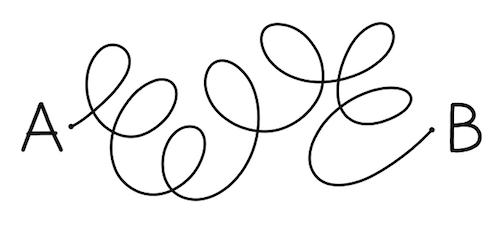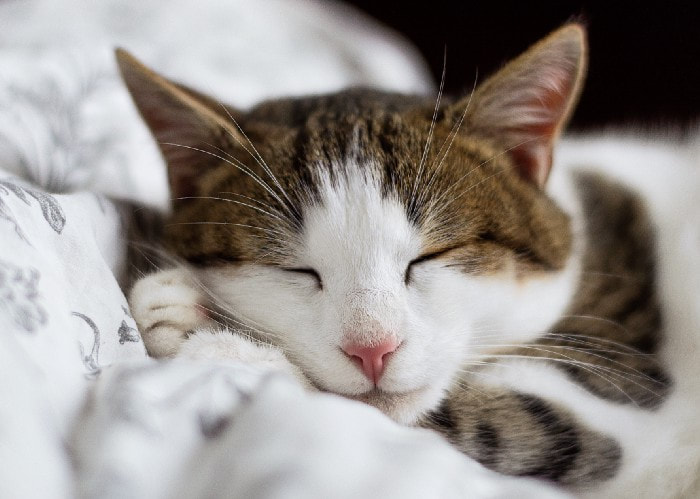|
Adulting is a thing, can we please make Friending one too? Hear me out. Use case: That embarrassing moment where you think you’re really good at something, and then someone comes along and mercilessly disabuses you of that notion. Painfully so. Blush-inducing. Where you want to run, hide, and eat copious amounts of Nutella. When the stakes are low, the fall from innocence isn’t that bad. Like landing on a soft, pillow-top mattress from the first story window. Wow, I guess I’m not that good at playing the tuba. I’ll try soccer instead. When the stakes are higher, though, the tumble is much more painful. Think: falling out of a 18th story window only to land on an overused dorm-room mattress. Ouch. This is:
There’s one reality, though, most people are hesitant to confront. This skill is so bedrock to our personal history, has so much potential to shape our lives, that to find out we’re bad at it would be grievous at best. Hence, we appoint ourselves Captain Avoider (check out my cape!) and aggressively look the other way. Have you guessed it? I’m talking about friendship. This article is for everyone who *thinks* they are a good friend, but deep down, just want some confirmation they are not off base. 1. Good friends notice the little things. Good friends pay attention. They notice your hair is half an inch shorter. They can tell you’ve been consistently going to that Sunday weight training class. They spot your new jacket and compliment you on it. Noticing the little things requires the other person to take the focus off themselves and give you sustained, individualized attention. Self-absorbed people don’t notice shit about you and they never will, unless, of course, it is in their own self-interest. Good friends don’t have to strain themselves to focus on you. It’s natural, they enjoy it, and as a result, they notice the little things :) 2. Good friends show up. Good friends show up when you’re in the hospital. They show up to your house 7pm on a Friday night (uninvited, might I add) after a tough breakup with a bottle of wine and a shoulder to cry on. They send you a care package when you’ve been swamped at work and haven’t had a chance to go to the grocery store all week. They show up in the good times also — they come to your cello performance, your housewarming, your dog’s 6th birthday party. Good friends are present & engaged, during both the good times and the bad. 3. Good friends follow-up. I started a new job this week. Many people in my life knew about it. Not all of them checked in with me to see how it went. It doesn’t mean they are bad people, it just means they are in the *acquaintance* category, not the *good friends* category. Good friends, the really good kind, follow-up. They make a mental note that you had a big event, or something you were nervous/excited about, and then check in within 48 hours to see how it went. It’s a way of looking after those we care about. It communicates:
4. Good friends are curious & enjoy giving conversational space. Great conversations are like basketball. I take the ball, dribble it a while, then pass it to you. You take it, you dribble it for a brief period, then pass it back to me. In healthy friendships, there is a back and forth in conversation. Each person has their moment to shine. The trouble comes when one person hogs the ball. Faux friends typically find a way to turn the conversation back to themselves, repeatedly, instead of asking follow up questions & showing interest. Real friends have no problem yielding the conversational floor because they are genuinely curious about getting to know you better. 5. Good friends have ‘old-fashioned’ habits. Good friends have very few barn-door tendencies. They leave voicemails. They prefer meeting in person and talking on the phone over endless texting. They are respectful to your family. They take their shoes off when they enter your home. When visiting, they bring a bottle of Cabernet, unprompted. They bring flowers to your opening night. Overall, their actions combine effort with thoughtfulness in a way that evokes a homey feeling that warms the soul. They act as if a What Would Cary Grant Dobumper sticker runs their prefrontal cortex. And I’ll be the first to say it — the result is just dashing. ❤ 6. Good friends are true to their word. Flakiness has to be one of the most unattractive qualities of 2019, and I must say, this abomination is growing in voracity, not abetting. It’s tragic too, because dependability is bedrock to deep, lasting friendships. A dependable person is a person of their word. If they say they are going to come to your house on Saturday, they show up. If they say they will be there at 5pm, they arrive at 5pm. If they say they will give you a ride to the airport, they do. They keep their word. Remember: our word is our bond. It’s one of the most influential — and shockingly neglected — aspects of our reputation. When someone meets us, that person is handing us an uncolored sketch titled ‘Can I Depend On You?’ Every interaction thereafter we are coloring in the drawing, answering them with our actions. Based on what we draw, people choose to stay in our lives or move on. High-value people have options. If the choice is between a dependable person and a flaky person (which it often is), self-confident people will pick the dependable person every time. 7. Good friends are three-dimensional. We all know that person who operates on just one-level. All the live long day. I call this person the baseball guy. All he knows is baseball. All he talks about is baseball. If the topic of conversation is something other than baseball he becomes withdrawn, glum, and virtually plaster-like. There’s nothing wrong with baseball, but my gosh, is there nothing else in life you find interesting? How utterly boring. Good friends are multi-faceted. They have various sides to them, like a precious diamond. Every time you turn it, you see a new aspect you hadn’t see before. You see your friend in various lights and, like diamonds, they are breathtaking to behold. 8. Good friends support you when you step out into the wilderness. Most people avoid being associated with something that isn’t tried and true successful, with something that is in its infancy and hasn’t actually ‘made it’ yet. People tend to support something publicly only after if it’s already approved by a multitude of voices. Safety in numbers. It’s an insecurity really, as if someone else’s success (or lack thereof) is a reflection on you. When you start a new venture, good friends lean in instead of pulling away. They are proud to be seen with you in the uncertainty; they stand by you in uncharted waters. They are in the bloody boat with you, not watching from shore making sure you don’t capsize before deciding to join you. They are there to support you when you step out and do something new, even if they are the only voice doing so. The absence of a crowd doesn’t phase them. If you’re trying to discern your true friends, scan your relational horizon for the people who stand with you, unabashedly, in the wilderness. That’s your tribe. 9. Good friends aren’t threatened by the success of others. Sadly, many people realize how important this trait is only after it is too late, when so much has already been invested. We all intrinsically know we need a friend when we’re having a hard time. That’s a no-brainer. But what about when you are on top of the world? When you get that promotion? That incredible new relationship? A faux friend will find reasons to make you feel bad about it because your success makes them feel ‘less than.’ When presented with the news of your new-found success, a faux friend will say things like: ‘Oh, won’t you have less time for the kids/your husband?’ ‘Oh, won’t that be much harder and put a strain on xyz?’ Don’t sugar coat this response — please see it in it’s full, sinister glory. This is a person drawing comfort from your pain, someone with a vested interest in you staying at the bottom because it makes them feel better about themselves. A good friend isn’t threatened by your success. A good friend will be genuinely happy when you succeed and not compare your success to their own situation. They view your life as independent to theirs. Which brings me to the next point… 10. Good friends are self-sufficient. Good friends don’t exist as an extension of you. They are their own unique person. Your bad day doesn’t affect theirs. Their tank is full. They are comfortable in their own skin. They don’t need you to validate them. Which is why they can call you on your shit when needed. Which is why they can uplift you when you are down. Which is why they are in a position to inspire you to be the best version of you. 11. Good friends give you what you need. The deepest and most mature level of friendship asks not what you or I want, but what the other person needs. The other person may want encouragement, but in this instance, they need hard truths delivered in tough love. They may want space, but actually need presence (or vise versa). They may want their poor behavior enabled, but actually need someone to shine a light on their dysfunction. They may want guidance, but really need to work through something on their own. True friendship requires knowing a person so deeply as to know what they need. It requires seeing a person and their needs independent from you. It requires the willingness to break rapport and take some relational risks, because you care more about the person than the state of the relationship. You have to risk being dead wrong and the other person being upset. You have to risk being spot on and the other person receiving it/growing in the process, or walking away. Give not what you or they want, but what they need. 12. Good friends are consistent. Hills and valleys, baby. That’s what life is. Anyone that says life is linear is a verified fool. The plot-line of life isn’t linear; it looks a lot more like this. We want friends who are consistent through the hills and valleys. Friends who are reliably themselves. It’s of little value if you are true to your word yesterday but not today. If you are secure and confident yesterday but ultra-clingy today. A good friend is a good friend consistently. This is what allows us to count on them. To feel safe and seen in their presence. We can take a deep breath and relax when we are with them because they will always be true. To themselves, and to us. Before I lose all you perfectionists out there, let me be very clear — We can’t be all of these things perfectly, but we can be them increasingly. Am I more consistent today than I was 3 months ago? Am I more supportive of others’ success today than I was 6 months ago? Overall, is there a general pattern of growth, not stagnation or decline, in these areas? Not perfectly, but increasingly. Friendship is too vital a skill to leave to subjective musings; these 12 traits bring an objective roadmap to help navigate our most important life relationships.
8 Comments
Life isn’t accidental. It’s a string of choices, followed by a string of consequences, which then present more choices. Daily we have the opportunity to maintain or change course. People often say things like in life, you have one shot. I just don’t buy it. New paths are everywhere, and we are tasked with discerning between opportunities and distractions. Between a good thing and a bad thing (maybe not empirically bad, but bad for us). But what about when we have to choose between a good thing and a REALLY good thing? What happens when we have to choose between:
Well, duh. We pick Option 2. The Seemingly-Better over the Status-Quo. It’s a no-brainer. The logical thing to do. Mentally, at least. See, that’s where life gets interesting. Most of our decisions are made emotionally, not logically. We make a decision (emotionally), and then try to explain why we made that decision using logic. We almost always come up with a seemingly plausible reason, even if it isn’t the honest one. What then do we do when making a decision logically that is contrary to our emotions? When we decide to go after the better thing even though, emotionally, we still love and want the lesser thing? The struggle is not in the justification but in the implementation. The mental gymnastics needed to cross the finish line and actually seize the better opportunity becomes exhausting, resulting in us dragging our feelings — kicking and screaming — to greener pastures. Ugly Tantrum, Party of 1. I recently had to make a very challenging choice, followed up with some challenging action. In considering taking the leap, I drew advice from the well of accepted truisms. Advice like:
I found much of this conventional knowledge marginally-helpful at affirming my choice, but not very helpful at actually motivating me to do the thing. To actually let go of the old and grab onto the new. Right before I was about to act, I did none of the above things. You know what I did instead? I reached out to those closest to me, conveying something along the lines of ‘I’m terrified, please give me a pep-talk.’ Word of advice: when you need people to show up for you big time, brutal honesty in communicating what you are feeling and what you need is GOLDEN. One of my Chief Encouragement Officers (on an unofficial title for those in my inner circle 😉) responded with a world series-level message. I’ve included it below in its full entirety. This message gave me the boost I needed to actually take action and opened my eyes to what really motivates us to take that first, scary step. 1. We Need to Be Reminded of Who We Are When we’re about to take a leap, our fear gives us tunnel vision and we lose sight of the most important asset to our success: ourselves. This person reminded me that I’m smart, I’m strong, I know how to build bridges, and I have the conversational chops to handle tough conversations. 2. We Need to Be Reminded That We Have Agency When under a perceived threat, the body responds in one of three ways: fight, flight, or freeze. Trepidation at starting something new can be paralyzing and enable the freeze reaction. As if a snake has bitten us and the poison is working its immobilizing magic through our body. We need to be reminded that we have agency. That no matter how the other person reacts,I choose how I respond. If the other person is triggered, I choose to see past it to their true feelings and respond appropriately. I can be purposefully active, not reactive. 3. We Need to Be Reminded That Our Fear Is No Match For Us Fear is just natural when taking the leap. But in the battle between us vs. fear, we need to hear that fear doesn’t stand a chance. We are way too qualified. We are the #1 draft pick. Notice, my friend didn’t tell me not to fear. Instead, it was more like I get that you are afraid, but you don’t need to be. You’ve done this shit over and over again. You are more than qualified. We often feel like David battling Goliath when it comes to our fears. We need people to remind us that in fact, we are Goliath. 4. We Need to Be Reminded That We Have A Safety Net It’s always bugged me when people say things like ‘everything is going to be okay.’ Sometimes it isn’t. Sometimes it doesn’t all ‘work out.’ Sometimes life comes crashing down and I tank with it. It’s not realistic to assume that everything will be okay, that risk has guaranteed success. That’s a Pollyanna approach. What we really need are people who say, as my friend said, “You got this. And in the moments that you don’t, we got you.” If it’s a mess, you have a place to come home to. The risk isn’t so much of a risk, because you’ll always have what you need regardless — us. That, right there, will give you wings. So what is required when taking a leap to the better opportunity? Courage is great. Deep breaths are great. Strategy is great. But what we really need is a support network that holds space for us. We need people to remind us who we are when we’ve forgotten & who will be there for us regardless of the outcome. “You’ve always been a cat person, you’ve just never had a cat,” my sister said, upon hearing that I would soon have a feline companion. I suppose she’s right. I generally prefer a night in to a night out, my take-out menu drawer is mightily robust, and my apartment is home to more books than dust particles. All that’s missing from this painfully stereotypical watercolor is a cat. Getting a cat has been on my to-get list for quite a while. Right above get a tattoo and just below get a house. Because, priorities. But how do you actually know you’re a cat person without, well, buying one? And if it doesn’t work out do you just return it? Does the pet store do an exit interview? Do you drop it off on the shelter’s doorstep in the middle of the night full stealth mode? Apart from the Spirit of Christmas Past visiting me as a result of doing such a heartless thing, I’d really like to know: what happens when a cat doesn’t work out? You can’t exactly ghost it. It’s not me, it’s you. I’m not afraid of commitment, but it sure seems like a death-do-us-part scenario. This rabbit-hole of what-happens-if-it-doesn’t-work-out has, in the past, hijacked my desire to get a cat. There were fleeting moments where I stemmed the tide of what-if and went looking for a kitty at a pet store. No concrete action came of it, because, well, have I mentioned the rabbit hole? It’s Vulcan-death grip is fierce. My new roommate came with a cat. It happened faster than I could think my way out of it. Alas, here we are, and by we, I mean me and Jimmy the Cat. I was at first skeptical because of the name. Who names a cat Jimmy? Pets with human names is on the list of Things That Freak Me Out. Alongside, of course, Josh Groban, and bonsai trees (they are not to scale!). I decided to give Jimmy the Cat a chance, though. Best laid plans. I made a terrible first impression. I was at work the whole day my roommate moved in and had a date that night, so I had to run home and get ready at super sonic speeds. Jimmy the Cat, at first sight of me, rubbed up against my leg and then, quite vulnerably, laid on his back exposing his belly (presumably, for me to rub). ‘I cant right now I need to get changed!!’ I bellowed, as I bolted into my room. I started changing, dress half off, only to notice Jimmy had followed me into my room, and again, was attempting to initiate first contact. I (not so) politely shooed him out of the room and made sure to close the door this time. I finished getting dressed and reached into my closet to grab my leather jacket and…there’s Jimmy! Somehow, he gained access back into my room (via the door that was now open) and snuck into the closet. This was getting out of hand. I picked him up and deposited him outside my door. At this point I’m reenacting Roadrunner scenes in my attempt to leave the house on time. While retouching my makeup in the bathroom, I look down and notice, you guessed it, Jimmy. Perched on the toilet seat, watching me. Like most men I know, he apparently enjoys watching me put on lipstick. Looking back on the encounter, I spurned every advance at connection with this cat. But lo and behold, there he was again the next morning, following me around, flipping on his back, communicating that he wanted some physical touch. LOVE ME, DAMMIT. His tenacity and confidence was endearing. He had decided that he liked me and didn’t care a crap what I thought about it. Can you say *low key* charming. This cat was pursuing me and it felt good. I pet him a little bit those first two days, but I definitely wasn’t matching his level of interest. Something fascinating happened on day 3, though. When I came home, I was expecting the same over-the-top, loving greeting, but instead, Jimmy eyed me from afar and flipped on his back from across the apartment, as if to say it’s your turn to come to me. He gave a little cry too for extra effect. You know what? I walked across the room and we had our first quality time cuddle session. He let me know he was interested — clearly, confidently, unabashedly — and then waited for me to meet him at that level. Brilliant. Can we take a collective moment to observe that this is the exact opposite of what most people do in a similar situation? I won’t talk for ya’ll, but here’s what I usually do when I choose to be vulnerable and it gets rebuffed. I retreat. I sulk. I say, ‘wow i’m not doing that again.’ At my weakest, I get self-conscious and ask myself if what I did was too vulnerable (as if there is such a thing). In essence, I take the rebuff personally. In reality, I should be more like Jimmy the Cat. I should take a rejection of my vulnerability as a reflection on the other person, not on me. I was running late, which is why I didn’t connect with Jimmy. It had nothing to do with him and everything to do with me. Here’s what I’m learning. When I choose to be vulnerable and it isn’t received well, it says more about the other person than it does about me. Maybe they’re not there yet in their maturity. Maybe they’re still hurting from a past relationship and not ready to dive-in. Or maybe, they’re just having a bad day. It’s not on me to divine their reasons. It’s also not on me to question my actions and authenticity. I choose to be vulnerable because that is how I show up and that is how I want to live my life. And I choose to not let other people’s response change this one iota. Vulnerability is about having the hutzpah to show up when you can’t control the outcome. It’s about communicating your needs when you have no clue if they will be met. It’s about staking a claim and taking up space instead of hiding. And most importantly, it’s about reserving the best of who you are for those who have earned the right to have it. I’m learning how to do this. I’m learning from Jimmy the Cat. BY MARYBETH GRONEK Dear America,
You owe me nothing, yet I owe you everything. How do I begin to tell you what you mean to me? My dad grew up fatherless in a garden apartment in a bad part of Chicago. More siblings in the house than pairs of shoes to share between them. My mom immigrated here from Italy in her adolescence. She often skipped school to accompany my grandfather on job interviews as his translator. She got him a city job as a cement worker. Decent pay, a pension, a godsend. She was the first in the family to attend college, paid for exclusively by her, working night jobs to do so. She bought her first house — in cash — in her late twenties. America looked on these two with expectant eyes. I see you. I have something wonderful for your future if you are willing to abide by my principals, Lady Liberty proclaimed. Game on, my parents responded. Most people would say I grew up in Chicago. Really, I grew up in a library and my bedroom desk. The library exposed me to successful people who came before me — Thomas Edison, Rosa Parks, Abraham Lincoln — people who dared to dream big and took massive action to create that reality. The library taught me that Liberty permits no excuses. It does, however, provide the terrain to chart your own course. You just need to know your end destination and be willing to play by the rules to get there. Oh and patience. You need patience. In addition to the library, I grew up at my bedroom desk. That’s where I came home every day after school to study. Hours upon hours I sat in that seat, taking up Liberty’s challenge. Do you have what it takes? Will you apply yourself? Every day, for hours at a time, I said yes. I trusted Liberty that this, this right here, would get me where I needed to go. I’m not sure you can call it trust when you have no other options; it’s more like hope. Trust/hope I did. Fast Forward. I’m now a 30 year old conquistador. My library & desk upbringing have molded me into an explorer. I’ve traversed the terrains of life: work, relationships, culture.
In this country we have the freedom to pursue that which brings success and fulfillment, and in so doing, conquer both. Each day holds refreshing and exciting opportunities. I could cry thinking of everything that is open to me. Liberty’s call is precise: What is it you want? Are you willing to do what it takes to get there? If you approach these questions honestly and answer them in the affirmative, you WILL go places. O America, how I adore you — let me count the ways. Where else can a little, first generation girl grow up (with hard work and tenacity) to be a self-sufficient, confident, successful woman? Where else can I own the wealth of my labor and choose how to spend it? Where else can I choose the path of my life and pursue it unencumbered? Where else is there a bright future for those bold enough to go after it? For those willing to get dirty and uncomfortable? The reward comes through the grime. Where else can anyone, irrespective of creed, background, or identity, build a life for themselves & forge their own way? I know no other place. I can pick my job. I can pick my mate. Heck, I can pick myself. Liberty isn’t doing whatever you want or getting all that you want— it’s wanting to do the right thing & having the choice to pursue it. Liberty is birthed in the soil of personal responsibility, courage, and sacrifice. You will not find words like ‘owe’ ‘demand’ or ‘deserve’ in her neighborhood. Her acquaintances are of more humble and scrappy stock. Lady Liberty speaks to all of us the same way. She says come on my terms and I can show you how to create your own destiny. I hold hands with my brothers and sisters today. Young, old, male, female, red and yellow, black and white. We genuflect, together, in front of you, Lady Liberty. We salute you for all that you are. For all that you inspire us to be. I can think of no other place on earth I’d rather be. |
Previous PostsArchives by Month
December 2020
Categories |
Site powered by Weebly. Managed by Namecheap







 RSS Feed
RSS Feed